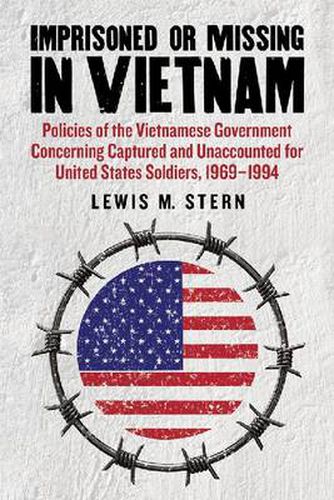Readings Newsletter
Become a Readings Member to make your shopping experience even easier.
Sign in or sign up for free!
You’re not far away from qualifying for FREE standard shipping within Australia
You’ve qualified for FREE standard shipping within Australia
The cart is loading…






This title is printed to order. This book may have been self-published. If so, we cannot guarantee the quality of the content. In the main most books will have gone through the editing process however some may not. We therefore suggest that you be aware of this before ordering this book. If in doubt check either the author or publisher’s details as we are unable to accept any returns unless they are faulty. Please contact us if you have any questions.
Despite their insistence that the complete withdrawal of U.S. troops was the condition for the release of prisoners of war, the Democratic Republic of Vietnam took little action to account for American POWs at the end of the Vietnam War. Almost two decades would pass following the end of the war before significant internal political changes, shifting regional alignments, changing Western interests, Sino-Soviet rapprochement, a nonmilitary settlement of the Cambodian conflict, and the collapse of the Soviet Union would bring Hanoi to the point of recognizing the importance of mending its relationship with the West. From the Paris peace talks to the U.S. government’s decision in 1994 to lift the trade embargo against Vietnam, Hanoi’s policy on American MIAs and POWs is examined, with particular focus on the influence of individual decision-makers on the process and the ways the Vietnamese leadership arrived at their negotiating strategies.
$9.00 standard shipping within Australia
FREE standard shipping within Australia for orders over $100.00
Express & International shipping calculated at checkout
This title is printed to order. This book may have been self-published. If so, we cannot guarantee the quality of the content. In the main most books will have gone through the editing process however some may not. We therefore suggest that you be aware of this before ordering this book. If in doubt check either the author or publisher’s details as we are unable to accept any returns unless they are faulty. Please contact us if you have any questions.
Despite their insistence that the complete withdrawal of U.S. troops was the condition for the release of prisoners of war, the Democratic Republic of Vietnam took little action to account for American POWs at the end of the Vietnam War. Almost two decades would pass following the end of the war before significant internal political changes, shifting regional alignments, changing Western interests, Sino-Soviet rapprochement, a nonmilitary settlement of the Cambodian conflict, and the collapse of the Soviet Union would bring Hanoi to the point of recognizing the importance of mending its relationship with the West. From the Paris peace talks to the U.S. government’s decision in 1994 to lift the trade embargo against Vietnam, Hanoi’s policy on American MIAs and POWs is examined, with particular focus on the influence of individual decision-makers on the process and the ways the Vietnamese leadership arrived at their negotiating strategies.